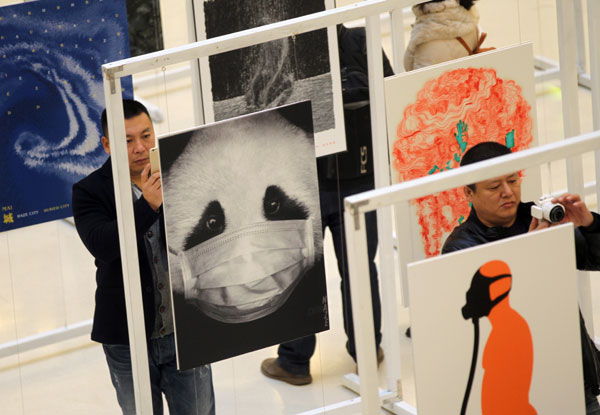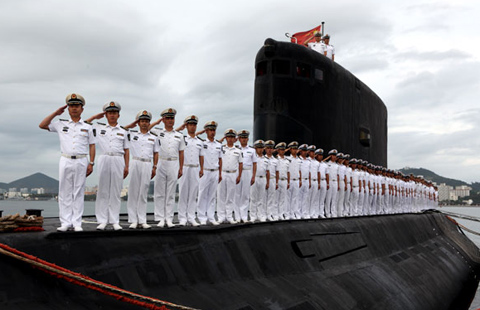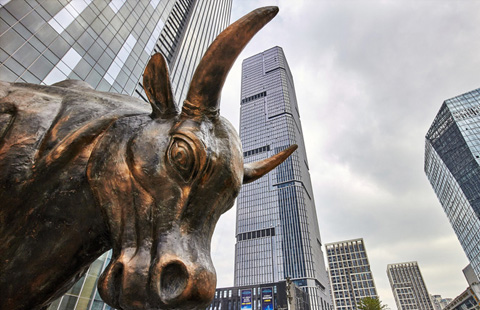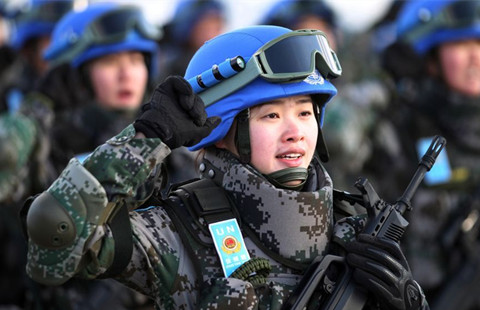Country gets tough over smog
Updated: 2014-12-23 08:07
By ZHENG JINRAN(China Daily)
|
||||||||

Posters illustrating China's dense and long-lasting smog in recent years are exhibited at Galaxy SOHO in Beijing on Dec 15. Three hundred posters depicting bad air were displayed to the public during the exhibition. ZOU HONG/CHINA DAILY
National People's Congress mulls amendment that cracks down on worst violators
China's top legislature will review the first amendment to the Law on Air Pollution Prevention and Control since 2000.The amendment is a necessary move to improve the national campaign to control air pollution, which has more sources today, the environmental protection minister said on Monday.
"The previous amendment is not effective in controlling current multiple pollution sources, and isn't working in ongoing efforts," Zhou Shengxian said on Monday while handing in the new draft to the National People's Congress Standing Committee.
The new draft was finished amid growing calls throughout the country for controls on air pollution, he said.
Based on the ministry's annual report on air quality, only three of China's major 74 cities in 2013 had air pollution within acceptable national standards. The average number of days with smog in the country in 2013 was 35.9, the most since 1961.
Coal-consumption sources contribute more to air pollution than they did 14 years ago, with such sources now including industrial production, Zhou said.
The new draft of the Law on Air Pollution Prevention and Control has separate chapters for each source.
The chapters include more details on dealing with various pollution sources, including the required use of advanced equipment and technology in production, instructions on how to monitor vehicle exhaust, and bans on importing coal that emits an unacceptable level of pollution.
The draft also will impose emission caps on the whole country. The current antipollution law has caps in only 11.4 percent of the nation.
The minister also said polluters currently are paying too low a price for violations, a big disincentive to controlling their behavior. The law needs more teeth to be effective, he said.
The new draft lists the detailed financial punishments, saying those responsible for air pollution will face larger fines, at most five times the direct economic loss in each case.
In addition, the amendment also has other stipulations on fines for different violations involving pollution, information disclosure or other aspects. For example, an automobile company, either domestic or foreign, that fails to release exhaust information on its vehicles will get a fine of 500,000 yuan ($80,400) at most.
Chang Jiwen, deputy director of the Research Institute of Resources and Environment Policies, Development Research Center of the State Council, said, "The new draft highlights the major role of companies in the air pollution control efforts."
Moreover, the draft stipulates joint control of air pollutants and greenhouse gases, a move to lay the foundation for a future draft on greenhouse gas control, said Chang, who has participated in the writing of the draft since 2006.
After the revised Environmental Protection Law passed in April, several other laws, including pollution prevention in the air, water and soil, are on the working agenda of the National People's Congress, of which the air pollution prevention draft will be taken up first.
Most Viewed
Editor's Picks

|

|

|

|

|

|
Today's Top News
No judgment yet on Sony; evidence awaited
Learning about 'Americanness' from Chinese-American vets
Alibaba IPO fuels startup boom to rival Silicon Valley
China's top Party offcial probed for disciplinary violations
No judgment yet on Sony
US arms sales to Taiwan protested
Chinese developer buys LA Marriott
Beijing seeks new tourism spotlight in New York
US Weekly

|

|















